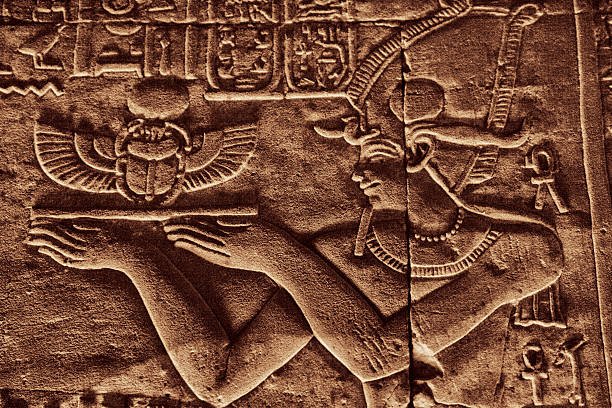10 Facts about Priests in ancient Egypt
In ancient Egypt, priests held a prominent position within the intricate tapestry of religious and societal life. Their role extended far beyond the bounds of mere ceremonial functionaries, as they were considered the earthly intermediaries between the people and the divine realm. Ancient Egyptian priests were entrusted with the responsibility of tending to the spiritual needs of the society, conducting sacred rituals, and maintaining the connection between the mortal realm and the realm of the gods. With their hierarchical structure, specialized knowledge, and devotion to the deities, these priests played a vital role in upholding the religious beliefs and practices that formed the foundation of ancient Egyptian civilization. Let us delve into the fascinating world of ancient Egyptian priests and uncover their significant contributions to the religious and cultural landscape of this extraordinary civilization.
10 Facts about Priests in Ancient Egypt
Here are some facts about priests in ancient Egypt:
- Priesthood Hierarchy: The priesthood in ancient Egypt had a hierarchical structure. At the top of the hierarchy was the High Priest, followed by various levels of priests, priestesses, and temple personnel.
- Temple Duties: Priests were primarily responsible for the daily rituals and religious ceremonies performed in the temples. These rituals included offerings, purification ceremonies, and recitation of prayers.
- Dedicated to Deities: Each temple in ancient Egypt was dedicated to a specific deity or a group of deities. The priests serving in a particular temple were considered the representatives of those gods and goddesses.
- Education and Training: Becoming a priest in ancient Egypt required extensive education and training. The prospective priests were instructed in religious texts, rituals, and hymns. They had to learn to read and write, as many religious texts were written in hieroglyphs.
- Ritual Purity: Priests had to maintain strict standards of ritual purity. They followed specific rules regarding cleanliness and purification, such as bathing, wearing clean linen garments, and avoiding certain types of food.
- Offering and Sacrifice: One of the main roles of the priests was to present offerings and sacrifices to the gods on behalf of the pharaoh, nobles, and the general population. These offerings included food, drink, and various ceremonial items.
- Divination and Oracle Readings: Some priests in ancient Egypt practiced divination and oracular readings to seek guidance from the gods. They would interpret dreams, study celestial movements, and analyze natural phenomena to provide insights and predictions.
- Medical Knowledge: Some priests also possessed medical knowledge and acted as healers. They believed that diseases could have both physical and spiritual causes, and they used medicinal herbs and performed rituals to treat the sick.
- Wealth and Land Ownership: Temples in ancient Egypt were wealthy institutions that owned vast amounts of land and received offerings from the people. The priests enjoyed a certain level of wealth and influence as a result.
- Burial Rituals: Priests played a significant role in the burial rituals of ancient Egypt. They performed funerary ceremonies, recited prayers, and conducted rituals to ensure the deceased’s safe journey to the afterlife.
It’s important to note that the roles and practices of priests in ancient Egypt varied across different time periods and locations.
Conclusion
Priests in ancient Egypt held esteemed positions within the religious and social framework of the civilization. They served as intermediaries between the people and the gods, conducting daily rituals, offering sacrifices, and maintaining the sanctity of the temples. Their responsibilities extended beyond the spiritual realm, encompassing roles as educators, healers, and custodians of vast temple wealth. With their extensive training and knowledge, priests played a vital role in preserving and transmitting religious traditions and performing important funerary rituals. The priesthood hierarchy and the dedication to specific deities added structure and organization to the ancient Egyptian religious system. The influence and significance of priests in ancient Egypt highlight the central role of religion in the lives of the ancient Egyptians and the importance they placed on maintaining a harmonious relationship with the divine.


